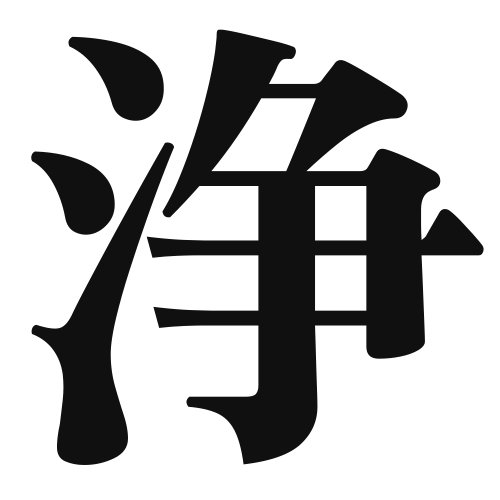1. Overview of Meaning
The kanji “浄” (pronounced “jou”) means “purity” or “cleanliness.” It is often associated with the idea of being free from impurities or contaminants, both in a physical and spiritual sense.
2. Formation and Radical
Formation of the Kanji: The kanji “浄” is a phonetic-ideographic character (形声文字). It combines the water radical (氵) on the left, which relates to water, and the character “正” (meaning “correct” or “right”) on the right, suggesting the idea of pure or correct water.
Radical: The radical of “浄” is “氵” (water), indicating its connection to cleanliness and purity.
3. Examples of Usage
Common Words and Phrases:
- 浄水 (じょうすい, “jousui”) – purified water
- 浄化 (じょうか, “jouka”) – purification
Example Sentences in Daily Conversation:
- この川の水は浄ですか? (Is the water in this river pure?)
- 心を浄化するために瞑想をします。 (I meditate to purify my mind.)
4. Synonyms and Antonyms
Similar Kanji:
- 清 (せい, “sei”) – also means “clean” or “clear,” but often refers to cleanliness in a more general sense, while “浄” emphasizes purity.
Antonyms:
- 汚 (お, “o”) – means “dirty” or “polluted,” representing the opposite of purity.
5. Cultural and Historical Background
Connection to Japanese Culture: The concept of purity is significant in Japanese culture, often reflected in practices such as Shinto rituals, where purification is essential before worship.
Proverbs and Idioms:
- 浄土宗 (じょうどしゅう, “Jodo-shu”) – a school of Pure Land Buddhism that emphasizes the importance of purity in achieving enlightenment.
